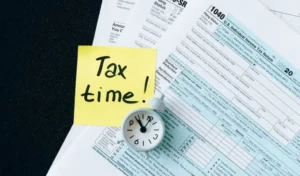The tax season can often be a source of stress and anxiety for many individuals and businesses. This is primarily due to the financial strain that may result from having to pay money to the government. Moreover, for those who are already facing debt, the prospect of owing even more money can further contribute to their worries. However, it is important to note that there are several tax relief options that have been established to help ease this burden.
These strategies not only aim to reduce the amount of money owed but also have the potential to save you money in the long run. In the subsequent paragraphs, we will explore some of the most effective tax relief strategies that are available to both individuals and businesses, with the goal of offering clarity and support during this challenging period of time.
Understanding Tax Relief
Before we delve into discussing the various strategies for minimizing tax obligations, it is essential to gain a comprehensive understanding of what tax relief entails and how it operates within the realm of taxation. Tax relief essentially encompasses a wide range of programs or strategies that are designed to effectively lessen the overall amount of taxes that an individual or business entity is required to pay to the government.
This can take the form of deductions, credits, and exemptions that serve to reduce the taxable income, thereby lowering the total tax liability. Additionally, tax relief initiatives may also involve specialized programs that allow taxpayers to spread out the payment of their tax dues over an extended period of time, rather than having to make a single substantial lump sum payment.
The Importance of Tax Relief
Tax relief is of paramount importance due to its numerous benefits and impacts on both individuals and businesses. When it comes to individuals, tax relief plays a crucial role in reducing the hefty financial burden imposed by taxes, thereby providing much-needed relief and potentially saving them a significant amount of money that can be redirected towards other essential expenses or investments.
On the other hand, for businesses, tax relief serves as a lifeline that can greatly enhance cash flow, enabling them to have more resources at their disposal to invest in various growth opportunities and expansion ventures. Moreover, tax relief can also have a ripple effect on the overall economy by injecting more money back into the hands of individuals and businesses, thereby fueling consumer spending, stimulating economic growth, and fostering a more prosperous financial environment for all stakeholders involved.

Tax Relief Strategies for Individuals
Take Advantage of Deductions and Credits
One of the most effective ways for individuals to reduce their tax burden is by taking advantage of deductions and credits. Deductions refer to expenses that are eligible for subtraction from your taxable income. By claiming deductions for specific expenses such as mortgage interest, medical expenses, or charitable donations, individuals can lower their taxable income, ultimately reducing the amount of taxes they owe to the government.
On the other hand, tax credits are monetary incentives provided by the government that directly reduce the amount of taxes owed. Unlike deductions which reduce taxable income, tax credits provide a dollar-for-dollar reduction in the amount of taxes owed, making them a powerful tool for lowering your tax burden. By maximizing both deductions and credits, individuals can significantly lower their overall tax liability and keep more money in their pockets.
Some common deductions and credits include:
- Charitable donations
- Education expenses
- Child tax credit
- Earned income tax credit
Be sure to research all available deductions and credits to see which ones you may qualify for.
Consider an Installment Agreement
If you ever find yourself in a challenging situation where you are unable to pay the complete amount of taxes that you owe to the IRS, there is an option that can provide you with some relief. This option is known as an installment agreement. By entering into an installment agreement with the IRS, you will be able to negotiate a payment plan that allows you to gradually pay off your tax debt over a specified period of time. This is particularly helpful for those who may not have the financial means to come up with the full amount all at once.
It is important to keep in mind, however, that even with the installment agreement in place, interest and penalties may continue to accumulate on the remaining balance. While this may be concerning, an installment agreement can still be a useful tool for individuals who are facing financial hardship and finding it difficult to fulfill their tax obligations. By working with the IRS to establish an installment agreement, you may be able to alleviate some of the financial strain and ultimately get back on track with your tax payments.
Seek Professional Help
Navigating the complex world of taxes can be an incredibly overwhelming experience, particularly when faced with financial difficulties that can make the process even more stressful. It can be easy to feel lost and uncertain about what steps to take when dealing with tax issues, which is why seeking the assistance of a qualified tax professional can be incredibly beneficial.
Not only can a tax professional save you valuable time and alleviate the stress of trying to tackle taxes on your own, but they may also possess the expertise and knowledge to identify potential tax relief strategies that you may not have known about. By entrusting your tax matters to a professional, you can rest assured knowing that your taxes are being handled in a thorough and efficient manner, ultimately providing you with peace of mind during a challenging time.

Tax Relief Strategies for Businesses
Take Advantage of Tax Breaks
Similar to individuals, businesses can also take advantage of deductions and credits to reduce their tax burden. Some common tax breaks for businesses include:
- Research and development tax credit
- Small business health care tax credit
- Work opportunity tax credit
- Energy-efficient commercial buildings deduction
Be sure to research all available tax breaks for your specific industry and business type.
Consider Debt Relief
If your business is facing financial difficulties due to overwhelming debt obligations, exploring various debt relief options can provide much-needed relief and potential solutions. One such option involves engaging in negotiations with creditors in order to potentially secure lower interest rates or establish more manageable payment plans.
Additionally, exploring the possibility of filing for bankruptcy, although a drastic measure, can also be considered as a way to alleviate the burden of debt on your business. By taking proactive steps to reduce your overall debt load, you can help improve your company’s cash flow, potentially saving money in the long run by minimizing interest payments and avoiding costly late fees.
Utilize Tax Planning Strategies
Tax planning is a highly intricate and meticulous process that involves strategically organizing and managing your finances in order to effectively minimize your tax liability. This can encompass a wide range of techniques and strategies, such as deferring income to a later time period, accelerating expenses to decrease taxable income, and leveraging various tax credits and deductions available to you.
By collaborating with a knowledgeable and experienced tax professional, you can develop a comprehensive tax plan that is specifically tailored to the unique needs and circumstances of your business. This personalized tax plan can ultimately assist you in significantly reducing your overall tax burden and maximizing your financial resources.

Tax Relief Strategies for Both Individuals and Businesses
File for an Extension
If for any reason you find yourself unable to meet the deadline for filing your taxes, you do have the option to request an extension. By filing for an extension, you are granted an additional six months to gather all necessary documentation and submit your tax return.
It is important to note, however, that while the extension provides you with more time to file, it does not excuse you from paying any taxes owed by the original deadline. Therefore, to avoid incurring penalties and interest charges, it is crucial that you still submit any payments due by the initial deadline.
Seek Penalty Relief
If you find yourself in a situation where you are being confronted with penalties for not making a payment on time or failing to file a necessary document with the IRS, there is a possibility for you to request penalty relief from the agency.
This relief is usually given when there is a valid reason behind the delay, such as being affected by a natural disaster or suffering from a serious illness that prevented you from meeting the required deadline. It is important to have proper documentation and a reasonable explanation prepared to support your request for penalty relief when submitting your request to the IRS.
News
As tax season unfolds, the IRS has already issued over 2.6 million refunds totaling $3.65 billion, though the average refund is notably smaller this year at $1,395 compared to $1,963 last year. Despite this decrease, early data suggests a promising start to the 2024 filing season. However, experts caution against drawing conclusions from limited data, emphasizing that many early filers, such as recipients of earned income and child tax credits, are yet to file. Additionally, pending tax legislation in Congress could potentially impact refunds, but taxpayers are advised not to delay filing. Despite this advice, nearly half of taxpayers plan to delay filing until March or later due to perceived complexity and stress.
Conclusion
Tax relief strategies are essential tools that individuals and businesses can leverage to alleviate the weight of their tax burden and possibly retain more of their hard-earned money. One effective way to reduce taxes is by capitalizing on deductions and credits available through the tax code. This can help lower taxable income and ultimately decrease the amount owed to the government. Seeking professional help from tax experts can further optimize tax planning strategies and ensure compliance with relevant laws and regulations. By taking proactive measures to manage your tax liability, you can significantly enhance your financial well-being.
Moreover, exploring debt relief options can also play a crucial role in easing financial pressures. By addressing outstanding debts and exploring repayment plans, individuals can alleviate the strain on their finances and potentially improve their overall tax situation. Seeking penalty relief for any tax-related issues can further mitigate financial challenges and provide a path towards financial stability. By being informed and proactive in implementing these tax relief strategies, individuals can approach tax season with confidence and potentially achieve substantial savings in the process.









